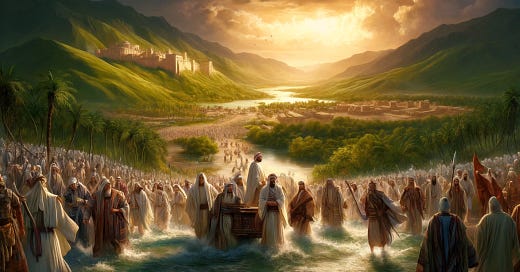Following the division of human languages and the continents, God chose Abram and bestowed upon him a promise of land and prosperity (Genesis 15:18-21). Abram originated from Ur, a city in the land of the Chaldeans (Genesis 15:7). God directed him to depart from his country and kin, promising to establish a great nation through him (Genesis 12:1-2). Those who blessed Abram would receive blessings, while those who cursed him would incur curses (Genesis 12:3). When God established the first land covenant with Abram, He foretold a period during which Abram’s descendants would be enslaved in a foreign land (Genesis 15:13). God further declared that He would judge that nation and deliver the Israelites with abundant wealth (Genesis 15:14).
During this dispensation, God employed Esau and Jacob as an example to demonstrate that salvation is not based upon a person’s desire or their works, but on God who show mercy (Romans 9:16). God expressed love towards Jacob, but was indifferent to Esau declaring—before they were born—the older would serve the younger (Romans 9:12-13).
After judging Egypt, God led the Israelites out of that land to Mount Sinai, where He revealed Himself to them (Exodus 19:2). Through Moses, God instructed the Israelites regarding His covenant and their unique role among the nations of the earth. They were to guard the covenant of promise, which pertained to the land God would grant them as a possession. As a treasured possess, they would be a nation of priests (Exodus 19:5-6). However, rather than accepting God’s word, the people responded by asserting their intent to fulfill all that God would continue to command (Exodus 19:8). Instead of guarding His covenant, they opted to demonstrate their righteousness through their own efforts.
In response to their refusal to guard His covenant and desire to demonstrate righteousness through their own works, God provided Israel with the Mosaic law. The purpose of the law was to reveal the profound sinfulness of human nature, for law give the sin nature strength (Romans 7:13; 1 Corinthians 15:56). Consequently, justification cannot be attained through the law (Romans 3:20).
In pursuing their own righteousness, the Israelites, upon being brought by God to the Promised Land, refused to enter because they were not guarding His covenant. This refusal led to forty years of wandering in the wilderness, during which the bodies of the unbelievers perished, and a new generation emerged (Hebrews 3:17). Regrettably, this disposition of self-righteousness persisted throughout their history, ultimately culminating in the rejection of their Messiah—the One who would send away their sins and establish a kingdom governed by righteousness (Romans 10:2-4).




